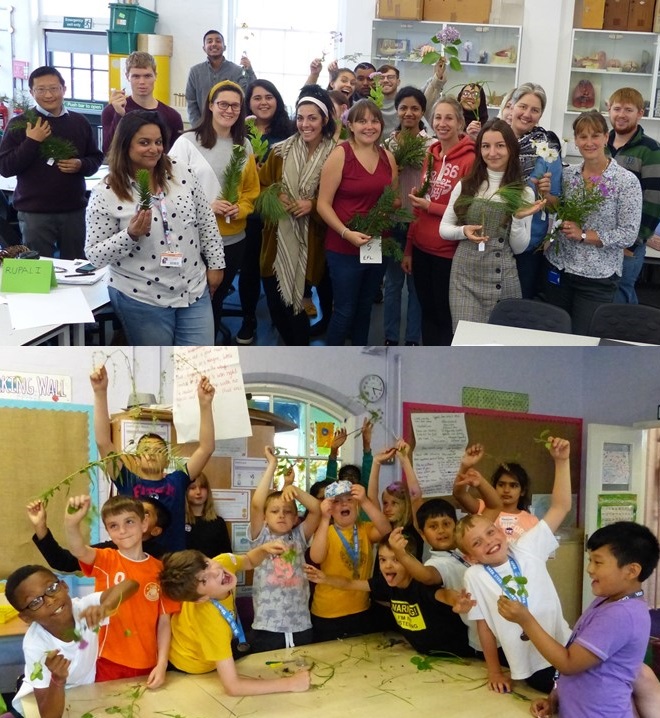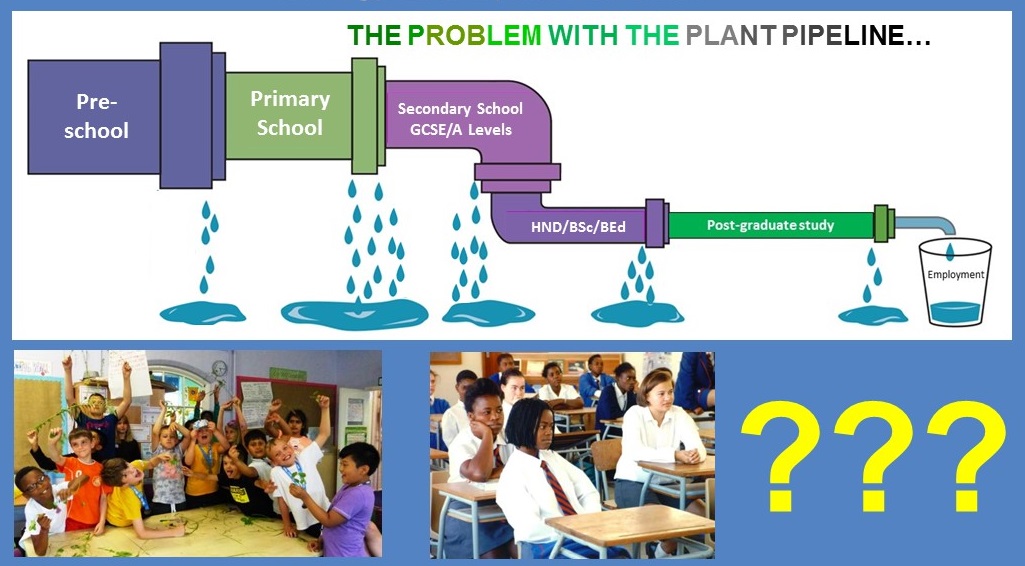A highlight of the Reading Botany 2019 celebrations is our symposium, “The Big Botany Challenge! How to promote passion for plants in our schools”.
This symposium takes place next Friday 8th November at the University of Reading to debate the most effective ways to enhance the coverage of plants in secondary biology education. Our symposium committee has identified secondary education, and specifically biology education, as a key “break-point” in the plant education pipeline where plant love is potentially lost and The Big Botany Challenge will be a forum to debate the concept, the issues arising and the most effective ways to enhance plant visibility and coverage the secondary biology curriculum and consequently encouraging and nurturing the next generation of botanists and plant-aware scientists.
Please share in the discussions via social media using the Twitter hashtag: #bigbotanychallenge
This event has now passed.
The Big Botany Challenge Symposium programme outline is listed below (approximate timings), but for more details on the debate click here.
09.30 Welcome – Jonathan Mitchley.
09.35-10.05 Symposium Keynotes (Chair: Jonathan Mitchley).
- Steve Blackmore (Botanic Gardens Conservation International) – The plight of British botany: international perspectives.
- Julie Hawkins (University of Reading) – The plant pipeline: teaching challenges.
10.10-11.00 Session 1 – Fascinating plants and their stories (Chair: Jonathan Mitchley).
- Frank Mayle (University of Reading) – Plants from the Amazon – a multitude of everyday uses.
- Robbie Blackhall-Miles (Fossil Plants) – Some weird fern relatives and the great carbon challenge!
- Nigel Chaffey (#Plants R Us) – Teaching botany by stealth…
- Chris Thorogood (Oxford Botanic Garden) – The evolution of new species of “killer plant”!
11.00-11.25 Coffee break and poster session.
11.30-12.00 Session 2 – Connecting young people with career opportunities (Chairs: Angela Hall and Simon Mortimer).
- Celia Knight (Celia Knight Consulting) – Building the plant health profession.
- Tamjid Mujtaba (University College London) – Science capital and raising awareness, motivation and aspirations for science careers.
12.05-13.15 Session 3 – Making the best of plants in the secondary curriculum (Chairs: Angela Hall & John Warren).
- Hannah Cheek (Pearson Edexcel) – Does assessment contribute to the lack of emphasis on plants in the curriculum?
- Ann Scott (University of York) – How can context-led A level teaching raise the profile of plant biology?
- Dan Jenkins (Science & Plants for Schools) – Just because plants are amazing … (What can research tell us about good botany teaching and learning?)
- Marcus Grace (University of Southampton) – What role should plant science play in citizenship science?
13.15-14.15 Lunch break including poster session and audience feedback activities.
14.15-15.25 Session 4 – What makes a great plant resource to inspire teachers & school students? (Chairs: J P Flavell & Sue Townsend).
- Science & Plants for Schools (SAPS) – Transport in plants.
- John-Paul Flavell (Kingston Grammar School) – Using and making keys.
- Sue Townsend (Field Studies Council) – Familiarity leads to understanding: botanical terms exercise.
- Zephaniah Lindo (RHS Campaign for School Gardening) – Showcasing training and resources for secondary teachers.
- Alastair Culham (University of Reading) – Cool Plants for Hot Classrooms.
- Aaron Mills & J-P Flavell (Andover College & Kingston Grammar School) – Views from current biology teachers.
15.30-16.30: Session 5 – Practical outputs and next steps for making secondary education a better place for discovering the joy of plants. (Chairs: Sue Townsend & Jonathan Mitchley).
Symposium Committee:
- Dr Jonathan Mitchley (Associate Professor of Field Botany, University of Reading);
- Sue Townsend (Biodiversity Learning Manager, Field Studies Council);
- Dr Tim Utteridge (Head of Identification and Naming (Asia Team), Royal Botanic Gardens Kew);
- Dr Angela Hall (STEM Education Consultant);
- John-Paul Flavell and Aaron Mills, Biology Teachers;
- Professor John Warren (Chair of Training & Education Committee, Botanical Society of Britain & Ireland);
- Professor Julie Hawkins (Professor of Plant Systematics and Evolution, University of Reading);
- Dr Alastair Culham (Associate Professor of Botany, Herbarium Curator, University of Reading);
- Susan Medcalf (Botanical consultant, RSK Biocensus);
- Professor Simon Mortimer (Professor of Environmental Land Management, University of Reading);
- Professor Frank Mayle (Professor of Tropical Palaeoecology, University of Reading); and
- Andrew Happle (Lecturer in Secondary Science Education, University of Reading).
To find out more email: j.mitchley@reading.ac.uk
Social media:
Twitter @readingbotany | @RNGherb | #plants2019 | #bigbotanychallenge
Facebook @PlantDiversity
Credits:
![]()
We are grateful to the New Phytologist Trust for financial assistance from an innovation grant to help realise our symposium
Our Symposium Motto: Teachers and school students unite for the love of plants!

Featured image of the leaking plant pipeline modified from various sources including www.businessandeducation.org
Image of excited primary school students (Oxford Road Community School, Reading) and University of Reading biology teacher trainees by Dr M
Image of bored secondary school students http://blogs.dunyanews.tv/14548/

